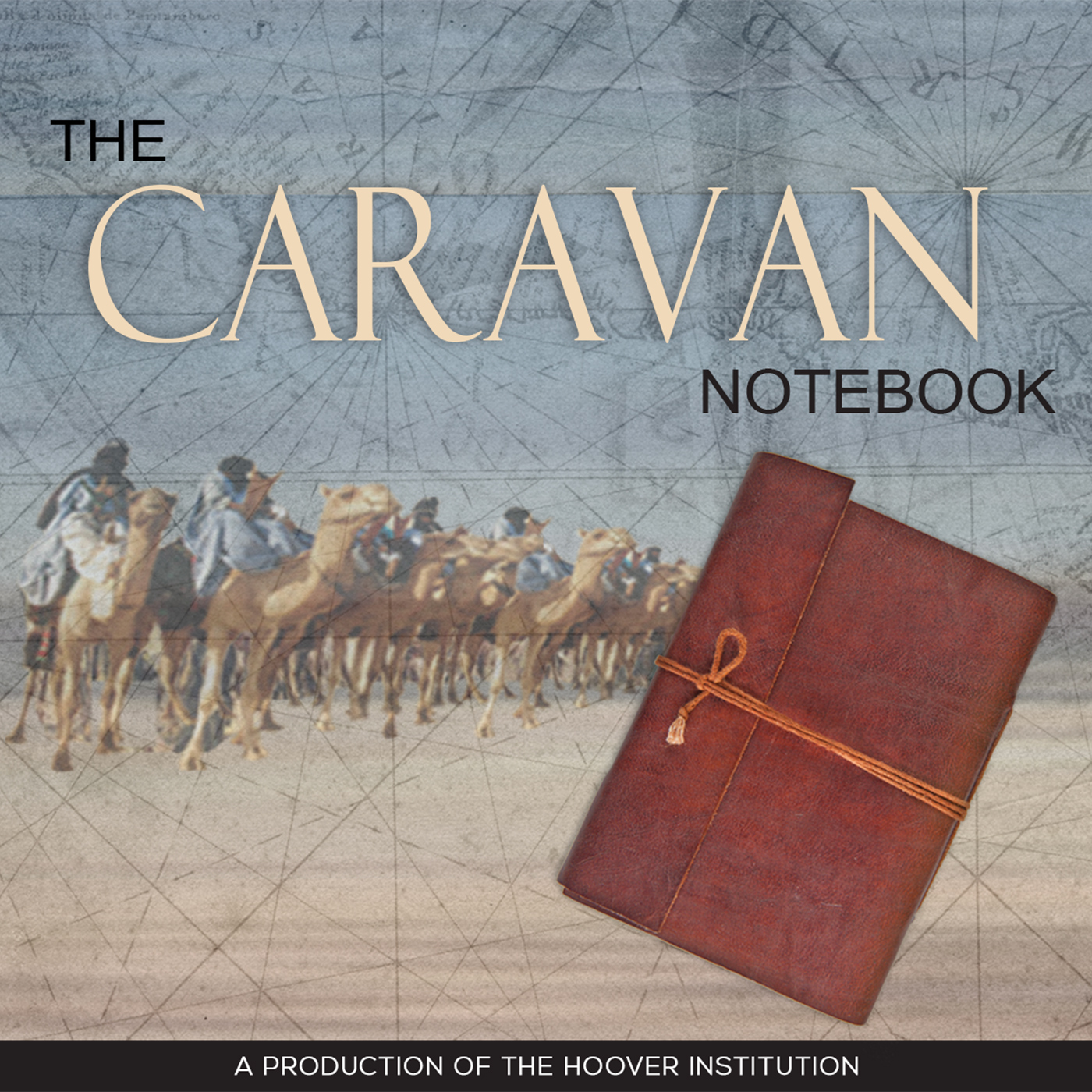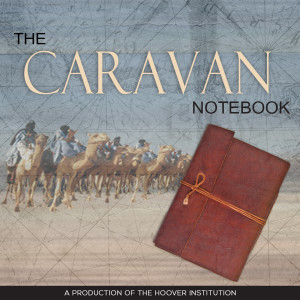
27.8K
Downloads
30
Episodes
The Caravan Podcast provides discussions of politics and culture in the Middle East and the Islamic World with regard to the challenges for American foreign policy.
The Caravan Podcast provides discussions of politics and culture in the Middle East and the Islamic World with regard to the challenges for American foreign policy.
Episodes

Tuesday Apr 20, 2021
America's War in Afghanistan: A Discussion with Wesley Morgan
Tuesday Apr 20, 2021
Tuesday Apr 20, 2021
Wesley Morgan, a journalist and expert on military affairs, discusses his new book The Hardest Place: The American Military Adrift in Afghanistan's Pech Valley, as well as prospects for Afghanistan and counterterrorism following U.S. withdrawal.

Tuesday Apr 06, 2021
The Iran Deal and Germany: A Discussion with Matthias Kuentzel
Tuesday Apr 06, 2021
Tuesday Apr 06, 2021
Negotiations concerning a potential American return to the Iran Deal have opened in Vienna. The diplomacy is complex. While the JCPOA is generally treated as involving only the U.S. and Iran, it also includes Russia, China and three European countries: England, France and Germany. Germany is exceptional because it is (aside from Iran) the only non-nuclear power in the talks, but also because of its long-standing special relationship with Iran. Political scientist Matthias Kuentzel studies this relationship and sheds light on several aspects including nuclear politics, anti-Americanism in Europe, and the anti-Semitism of the Iranian regime. He builds on his book Germany and Iran: From the Aryan Axis to the Nuclear Threshold and some of his articles are available at matthiaskuentzel.de

Tuesday Mar 23, 2021
Lessons from an American Prisoner in Iran: A Discussion with Xiyue Wang
Tuesday Mar 23, 2021
Tuesday Mar 23, 2021
The Biden Administration is eager to reverse the Trump administration’s policy of “maximum pressure” on Iran and reenter the Iranian nuclear deal, or JCPOA. Xiyue Wang, who spent 40 months as a prisoner in Iran on false charges of espionage, shares his criticism of this approach. What is the nature of the Iranian regime? What is problematic about “Obama-style engagement”? And what should U.S. policy toward Iran be?

Monday Mar 08, 2021
Human Rights in Saudi Arabia: A Discussion with Karen Elliott House
Monday Mar 08, 2021
Monday Mar 08, 2021
The Kingdom of Saudi Arabia is undergoing profound changes. With its young population, it faces a transition from a traditional, conservative society to one with greater rights, perhaps especially for women. The powerful young Crown Prince, Mohammed bin Salman, is driving some of these changes, which also concentrates power in his hands. The Biden administration has given him the cold shoulder because of his implication in the murder of journalist Jamal Khashoggi. What does this mean for the US-Saudi partnership that dates back to the Roosevelt administration? And how do difficulties between Washington and Riyadh look in the context of Iranian ambitions to achieve hegemony in the Middle East? Karen Elliott House, a longtime observer of Saudi Arabia and author of Saudi Arabia--Its People, Past, Religion, Fault Lines--and Future, discusses the cultural transformations and the political challenges.

Monday Feb 22, 2021
Turkey and the United States: A Discussion with Michael Doran
Monday Feb 22, 2021
Monday Feb 22, 2021
U.S.-Turkish relations have hit a low point in recent years. Yet it is imperative, according to Michael Doran, that the United States and Turkey rediscover their common interests. What are the sources of conflict between the two countries? How should the United States see Turkey as it formulates Middle East strategy? What are the prospects for U.S.-Turkish relations under the Biden administration?

Wednesday Feb 10, 2021
Islamism and Islam: A Discussion with Elham Manea
Wednesday Feb 10, 2021
Wednesday Feb 10, 2021
Discussing her new book, The Perils of Non-Violent Islamism (Telos Press), Elham Manea describes her experience of a tolerant Islam in Morocco, the traditionalism of Yemen, and her own encounter with Islamist indoctrination. She explores the nuanced relationship between the politics of Islamism and its selective reading of religious traditions, and she comments on current French policies against Islamist "separatism" and the upcoming referendum in Switzerland that would prohibit wearing the niqab. She ends with a report on a reform movement within Islam.

Friday Jan 29, 2021
Saudi Arabia, Reform, & U.S. Policy
Friday Jan 29, 2021
Friday Jan 29, 2021
Under Crown Prince Muhammad bin Salman, Saudi Arabia has undergone a dramatic transformation as it pursues unprecedented economic diversification and social liberalization. It has also moved toward greater authoritarianism and political repression. What is the outlook for these changes? How stable is the kingdom today? And how will the Biden administration handle the relationship with Saudi Arabia?

Tuesday Jan 26, 2021
The Arab Public and US Foreign Policy: A Discussion with Faisal Abbas
Tuesday Jan 26, 2021
Tuesday Jan 26, 2021
The Survey, conducted by YouGov and Arab News, shows how the Arab public was disappointed with Obama era policies. This result cautions against the Biden administration returning to them, especially with regard to Iran. Trump received greater support in the Gulf and the Levant than in North Africa. High on the list of aspirations in the region is the empowerment of young people, which ranks on par with progress between Israel and the Palestinians.

Wednesday Jan 20, 2021
Syria and US Foreign Policy
Wednesday Jan 20, 2021
Wednesday Jan 20, 2021
In Syria, American foreign policy faces an enormous humanitarian crisis and a political challenge to implement UN Security Resolution 2254, against the backdrop of competition from both Russia and Iran. A US return to "the Iran Deal" is likely to exacerbate conditions in Syria, while continued American support for the Kurdish YPG in Northeast Syria raises human rights concerns. The Syria file is one of the most complex and most urgent that the Biden administration will face.

Tuesday Jan 05, 2021
Al-Qaida and the Taliban at the Crossroads
Tuesday Jan 05, 2021
Tuesday Jan 05, 2021
In late February the United States and the Taliban reached an agreement over the withdrawal of U.S. forces from Afghanistan. The Taliban has pledged not to host al-Qaida or allow it to use Afghan soil "to threaten the security of the United States and its allies." The reaction in the world of jihadism has been mixed, ranging from celebration to condemnation. Is the deal a victory for al-Qaida or a severe blow? What is the state of al-Qaida in the world today?
